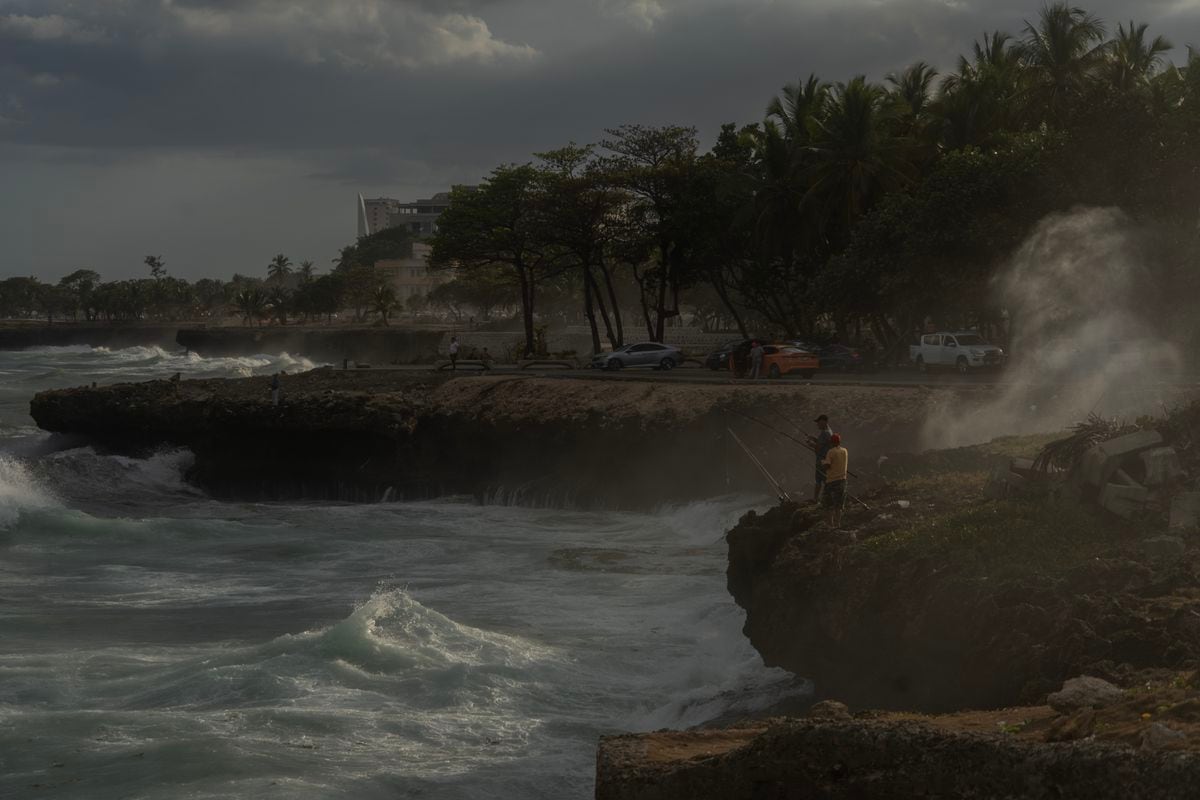The countries of Ibero-America have an opportunity to fight against climate change through a substantial shift in the paradigm of food production.
The challenge is significant if one considers that supplying its 22 nations with food generates 45% of the region's greenhouse gas emissions, as documented in the III Report of the La Rábida Observatory on Sustainable Development and Climate Change for Ibero-America, presented in the run-up to the Ibero-American Summit to be held this week in Santo Domingo.
The study shows in profile the problems that Ibero-America is already facing in its food chains and the impact it is having on its ecosystems, but at the same time it proposes solutions for members to implement plans that help them mitigate environmental effects.
In Latin America, producing food, through livestock and agriculture, is highly polluting and its effects, in turn, contribute to putting the population's food security at risk.
The Ibero-American Secretary General, Andrés Allamand, during the presentation of the report. Mónica González Islas
The improvement of the distribution chains of agricultural products, increasingly globalized, deepen the problem of the emissions necessary for a product to reach the consumer.
“Ibero-American food systems stopped being traditional —with short chains of production and consumption— to become modern, with a greater amount of processed food, which travels an average of 3,000 kilometers and is stored, refrigerated and sold in large stores. ”, the report explains.
To the high emissions, the research suggests, are added two opposites suffered by the region's population: hunger and obesity.
Access to foods of low nutritional quality reduces the health status of Ibero-Americans from a very early age.
At the same time, some 60 million people in Latin America and the Caribbean lack the food they need to get through the day.
“In addition to the lack of access to food, a healthy diet is also not affordable for a large part of the Ibero-American population, since its cost can exceed 3.60 dollars in South America and 4 dollars in the Caribbean countries .
More than 50% of the population cannot afford it, due to income levels, inequality or the incidence of poverty”, the study points out.
The calculation is that 30% of those foods that have already generated emissions in their production and distribution processes will not reach consumers and will end up in the landfill.
"In Latin America and the Caribbean, losses occur in the harvest, transport and storage stages, while in the countries of the Iberian Peninsula food waste is greater in sale and final consumption."
The organization points out that a chain is produced that not only damages the environment, but also ends up having an impact on the health of the inhabitants of the region.
Sergio Arjona Jiménez, Vice Minister of Sustainability, Environment and Blue Economy of the Junta de Andalucía, Enrique Yturriaga, General Director for Ibero-America and the Caribbean of the Ministry of Foreign Affairs, EU and Cooperation of Spain, the Ibero-American Secretary General, Andrés Allamand and Limber Cruz, Minister of Agriculture of the Dominican Republic, during the presentation of the report. Mónica González Islas
“The solution to the climate crisis lies in Latin America and we must not forget that”, commented Andrés Allamand, Ibero-American Secretary General, during the presentation of the report this Wednesday.
The Chilean former foreign minister has assured that in the last five summits of the 22 countries, the concern about the impact that the food chain has on climate change has been discussed recurrently.
Allamand points out that the role of Ibero-America in contributing to the global mitigation of greenhouse gas emissions can begin with the creation of "a virtuous circle" that attacks each of the factors that harm the food security of Ibero-Americans.
The report proposes a series of solutions that countries can implement: among them are the design of short chains of production and consumption;
the implementation of sustainable and healthy diets for the population supported by the States;
the inclusion of native peoples in agricultural processes;
and the implementation of measures within the same ecosystems to avoid further interventions and damage to the environment.

